Following last week’s NATO summit, Britain has signed a contract for nine new P-8 maritime patrol aircraft.
This, the government claim, underlines the UK’s determination to deliver on its Strategic Defence and Security Review commitments and providing a clear sign of the UK delivering on its pledge to maintain defence spending at 2% of GDP.
According to the Ministry of Defence in a press release, Boeing will increase overall bid opportunities offered to UK suppliers and work with the UK government to enhance UK suppliers’ competitiveness. The aim of the initiative is to create the opportunity for UK companies to double their supply work with Boeing and to win higher proportions of content on future Boeing aircraft.
Defence Secretary Michael Fallon said:
“Our new MPA aircraft will provide significant protection of the UK’s nuclear deterrent and our £6 billion aircraft carriers.
They are part of our plan for stronger and better defence, backed by a budget that will rise each year of this decade. That means more ships, more aircraft, more troops available at readiness, better equipment for special forces, more being spent on cyber – to deal with the increased threats to our country.”
The P-8, manufactured by Boeing, are being purchased from the US Government via a Foreign Military Sale. The cost of developing and delivering the UK’s MPA capability, including paying for the people, their training, the infrastructure and necessary support at RAF Lossiemouth will be around £3 billion over the next decade. By tapping into the well-established US production line, the UK will get a tested and proven piece of equipment in the right timeline. In addition, the RAF will benefit from collaboration with some of the UK’s key allies, including the US Navy and the Royal Australian Air Force.
Tony Douglas, Chief Executive Officer of the MOD’s Defence Equipment and Support organisation, said:
“Already in service with other nations, the P-8A aircraft was the best solution to fill our Maritime Patrol Aircraft capability gap; it is tried, tested and can be delivered in the timeline we need. The fact that we have been able to commit the main investment decision on this key procurement less than nine months after the Government announced its intention to buy these aircraft is a great testament to the agility, professionalism, and drive of DE&S, working closely with colleagues across MOD and the US Navy.”
The P-8A is based on the Boeing 737, which is already supplied by UK industry, supporting several hundred direct UK jobs. What is more, UK manufacturers also already provide specialist sub-systems for the P-8 itself. Companies include Marshall for the auxiliary fuel tanks, Martin Baker for the crew seats and General Electric for weapon pylons. The new order of P-8As is also set to create opportunities for the UK to bid for training and support contracts.
Boeing has also signed the Aerospace Growth Partnership Supply Chain Competitiveness charter and will make the UK its European base for training, maintenance, repair and overhaul across its defence fixed-wing and rotary platforms.
Additionally, Boeing and the government intend to work together to build a new £100m P-8 Maritime Patrol Aircraft operational support and training base at RAF Lossiemouth in Scotland, creating more than 100 new jobs.
The Prime Minister said:
“Whatever uncertainties our country faces, I want the message to go out loud and clear: the UK will continue to lead the world in both civil and defence aerospace. We aren’t just open for investment: we are a place the global aerospace industry wants to do business – as Boeing’s long-term partnership with the UK proves.
It’s also important to put government investment where it counts. That’s why we are jointly funding the new R&D fund with the aerospace industry and why I’m pleased we have today signed the contract for 9 new P8 Maritime Patrol Aircraft for the Royal Air Force, underlining the UK’s commitment to spending on vital defence.”
Boeing has made clear that it will continue to grow its commercial aviation services business in the UK and will make the UK a base for defence exports to Europe and the Middle East, increasing UK employment, investment and tax revenue.


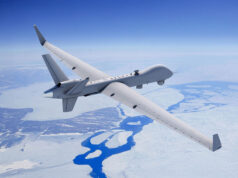



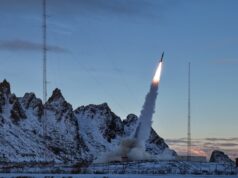
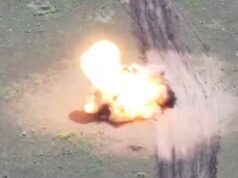

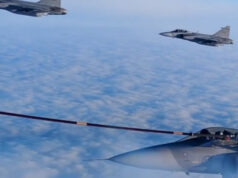
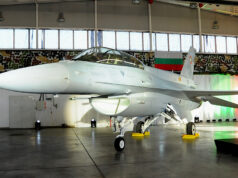
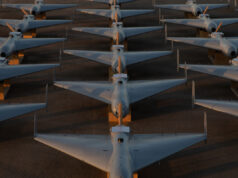

Great news, but following your article the other week, how much UK “kit” (eg weapon systems and the like) will be incorporated from the outset ?
Good question but the good news is that we’ve got these for the long term and any British centric stuff can be incorporated in due course if need be.
Now we need to protect the R1 Sentinel.
Is 9 enough to cover the whole uk coastline?
Course it will be. ? 2-3 could cover it on a daily basis. The rest can cover replacement duties while the others go for maintenance
That just depends as to how many get deployed around the world… & how reliable they turn out to be.. not just the aircraft .. all the electronic gubbins inside !
“It’s also important to put government investment where it counts”
In buying 100% American aircraft!!! Yeah baby.
In buying US weapons to put on it too. Yeah baby.
In building a Scottish 100 million hangar. Yeah baby.
On top of buying 50 100% brand spanking new American Apache helicopters. Yeah baby.
Too much excitement for one day. Must lie down. Go Britain.
Good old times when the UK was producing it’s own maritime patrol aircraft : Nimrod
Yes but they massively screwed the Mk4 up
Only by scraping them? Such a waste
Very good news
As long as they bought a P-8 & didn’t send the prime a spec saying “we want off the shelf but here’s our detailed list of British niche requirements “.
Jon Roach indeed. It sounds like they have been sensible, even resisting the inevitable RAF demand to integrate all our missiles.
Can do that later. Are they leased like C-17 or bought outright?
Bought outright this time. I believe they are trying to pinch ones that were allocated to the US Navy in the production cycle to get them in service before 2020.
ThomasChadwick it’s coming!!!!!!!!
This aircraft probably isn’t a patch on the Nimrod MRA4 that our Tory Government decided in their wisdom to chop up after spending billions on it to near completion. Crazy!!!
“agility” & “DE&S” in the same irony-free press release, clearly times have changed.
This P-8 is built on a B-737 platform which is the most successful aircraft in the world with over 8000 sold. The Nimrod was rubbish, just ask those that flew on it. The UK sells heaps of kit to the US so this shouldn’t matter. Get over it